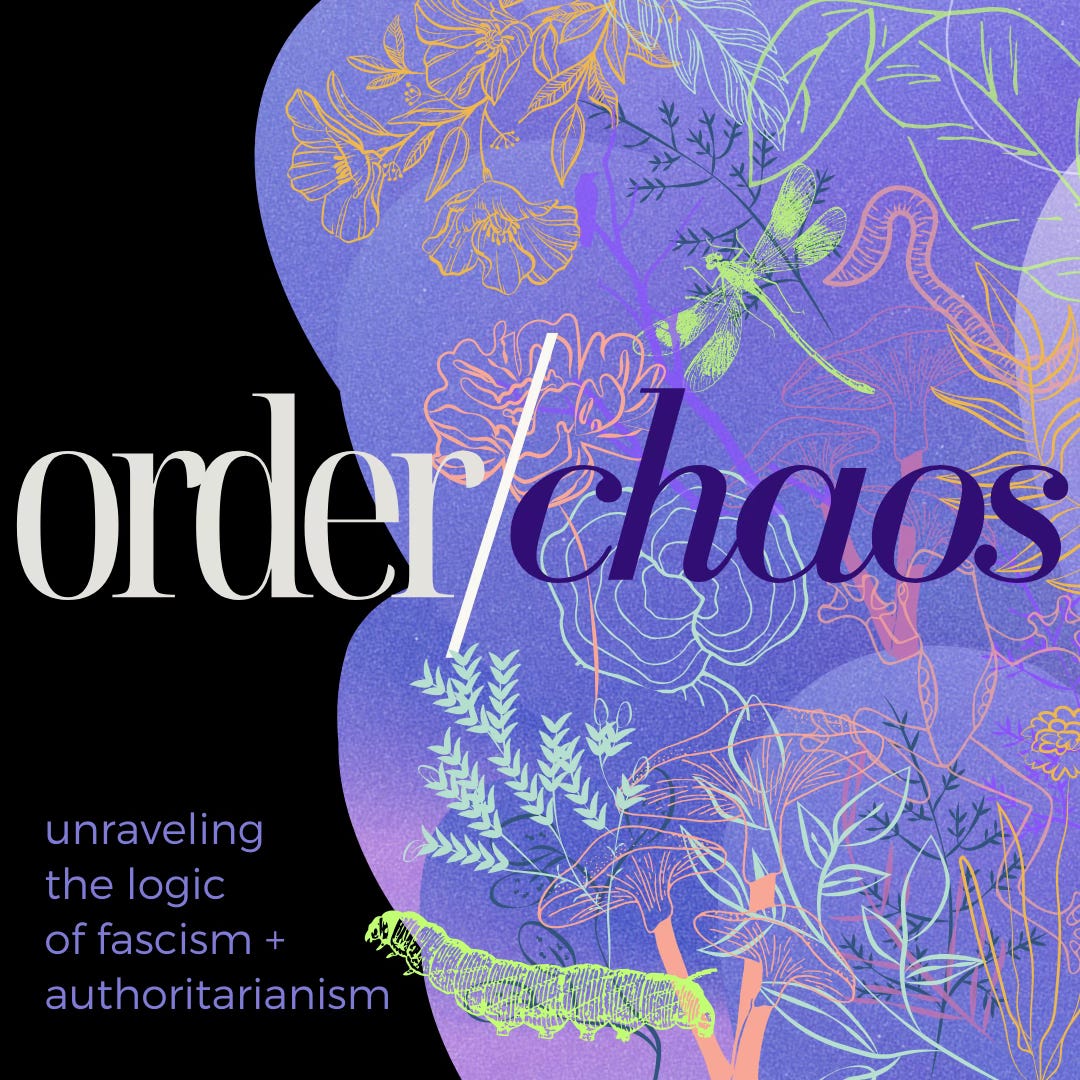on order and chaos; and neither
Hi sweet humans,
I have at least three drafts of the same email sitting and waiting for me to return to them, each one a slightly different angle on fascism and authoritarianism, and why for many of us they’re so difficult to spot or know what to do about. I realized about two months into editing these emails, and having them diverge more than coalesce, that probably this is something that needs a little more air + time. So I’m running a workshop on it tomorrow evening at 7pm EST. If you can’t make that time and want to get notice on when I’m running it again, you can sign up for the waitlist.
We’re living in a time that feels chaotic, and maybe overwhelming; a time when people from all directions and schools of thought have plenty of hot and nuanced takes on what’s happening to and around us. order/chaos is a space to share some of what I’ve learned about how authoritarianism and fascism work, particularly in the united states, the ways they show up in us without us really noticing, and some of the zillions of ways out and around and through this way of approaching the world and each other. As a thank you for being here with me each month, you can use the code CHAOS to sign up for free.
Ok thanks for reading that! I’m ending today’s email with a little overview of binaries and binary thinking, that I first shared when I started this little monthly newsletter.
the order of binary structure
Binaries show up almost everywhere in our culture — in part because they’re a really useful tool that helps us sort a complicated world into clear categories. They tell us where we are, and where we are not. And because the world can be incredibly complicated, it makes sense that we might want to lean on binary thinking as a shortcut for moving through the world.
The problem is that for several hundred/a couple thousand years, depending on where you locate their emergence, binaries have been used in service of domination, of sorting everything and everyone into categories: good/bad, better than/worse than, worthy of protection/deserving of violence. Almost everyone alive today lives in a culture rooted in this kind of binary thinking, where binaries are not used as one kind of sorting tool among many others, but rather as a kind of map that lets everyone know where they and everyone else are in a power dynamic/hierarchy, and how to treat each other based on that categorization.
Binaries in service of domination encourage us to see the two sides of a binary as the only two options: good or bad, right or wrong, ordered or chaotic, and to constantly fear being put in the bad category.
In binary cultures, binary thinking seems natural, normal, given, like gravity or sunsets. And yet, the more we study binaries, rather than taking them for granted, the more we learn how artificial and out of sync they are with the rest of the planet, and how much expansiveness and possibility actually exists in the world around and within us.
both and neither is a space to take apart binaries, and the systems of domination they support, to study other ways of being, and to reconnect with the nonbinary ways of being that already exist within us. Each of us is always already nonbinary in our approaches, because the planet, and the life that exists here, are themselves nonbinary.
I’m sending you so much nonbinary love from the creeks,
Kali




thank you, Kali, for the discussion and the coupon code. I hope to make it live, but if I can't I'm going to listen on Tuesday morning.